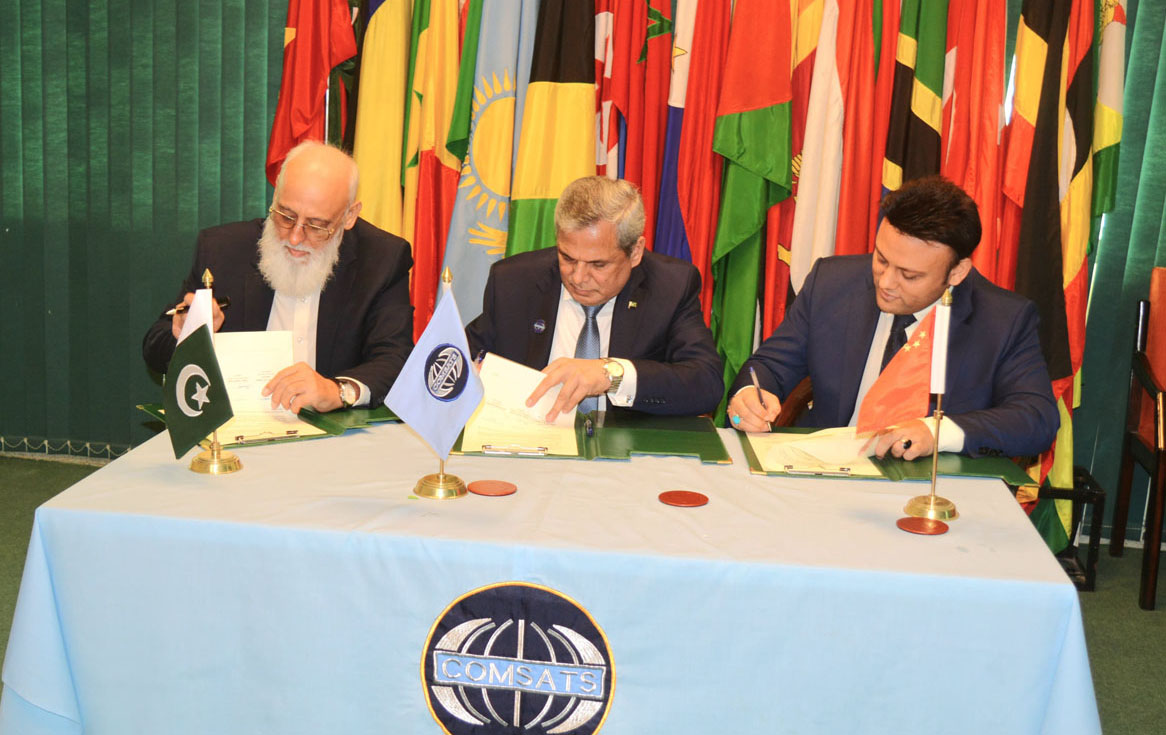On 5th October 2022, COMSATS signed a Memorandum of Understanding with the Islamic Organization for Food Security (IOFS), Kazakhstan, with the aim to contribute towards strengthening capacities of both organizations’ Member States in Climate Smart Agriculture to ensure sustainability targets relating to food security and resilient livelihoods. The MoU was signed by the Executive Director COMSATS, Dr. Ghulam Muhammad Memon, and the Director General of IOFS, H.E. Yerlan Alimzhanuly Baidaulet on behalf of their organizations.
The agreement provides a framework for strengthening cooperation towards the sustainable development of projects on agriculture and food security, with a focus on climate-smart technologies and practices. Specific objectives of the MoU include facilitation for:
- high-level policy debates and technical exchanges towards institutional partnerships and supporting capacity development initiatives to provide expertise and technical know-how to COMSATS and IOFS common member states;
- addressing problems posed by climate change by means, including enhancing productivity, connectivity, and increasing resilience for vulnerable groups in the Global South;
- designing and implementation of innovative initiatives and joint projects under the Green Climate Fund (GCF), Global Environment Facility (GEF) and Adaptation Fund; and
- realization of the Sustainable Development Goal 2 (SDG2) for food security and sustainable agriculture.
Both entities considered the MoU important in terms of developing synergy between IOFS and COMSATS based on their expertise and priority areas and also for their continuous contribution to promoting South-South and Triangular Cooperation through innovative and comprehensive regional and cross-regional initiatives. Under the MoU, both organisations will jointly pursue training and research activities related to climate change, agriculture and rural development policies, innovation, and social development, such as food security and health, utilizing South-South and triangular cooperation.






